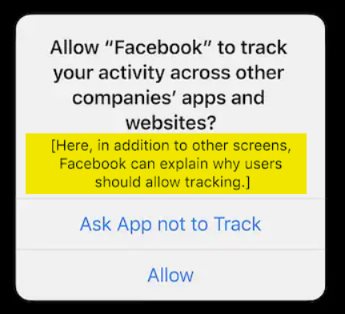Next year ushers in a watershed moment in the brief but ferocious life of the internet; 2022 marks the year where Google will sunset the third-party cookie. No, I'm not making a joke about a humble choc-chip cookie riding off into the sunset, I'm talking about the little bit of code that has largely enabled the internet to remain 'free' and open for all to use.
The same snippet of code has also resulted in less than favourable outcomes for internet users (such as data leaks and pesky ads that follow you around in an eerie kind of way). Cookies have their place and ultimately help us have a more enjoyable internet experience; they help remember your language preferences on your favourite news site, your location (for accurate weather information), your login details when you want to quickly buy a concert ticket (I so long for those days) and they help you remember what was in your shopping basket when you had to quickly abandon ship because the bath was about to run over.
These cookies, however, are known as first party cookies and they’re here to stay. From a brand’s perspective, these are super useful cookies as their ‘crumbs’ help create a rich tapestry of user data which they can use to keep enhancing your experience each time you visit their site. So, third party cookie, your days are numbered boet.
Johan Walters, Ansa Leighton & Niamh NicLiam 2 Jun 2021
But why the big fuss, especially if third party cookies have a positive role to play in helping to keep the internet open, and free (literal and figurative data costs aside)? Well if you’ve watched some of the documentaries of late (The Great Hack, The Social Dilemma etc.), or if you’ve been a victim of cybercrime because your data was shared with someone with unscrupulous intent, or even if you just hate it when you looked at a pair of shoes and then all you see for the next week are shoe ads, then I’m sure you’ll be happy to see the back of third party cookies.
Some internet browsers have already been banning these for a while now (such as Apple’s Safari, Microsoft’s Edge - previously known as Internet Explorer - and Mozilla’s Firefox internet browsers), however they’re firmly in the minority when it comes to browser usage globally and locally.
Google’s Chrome browser is used by more than 60% of the global internet population, so therefore it has the largest role to play in the proliferation (or not) of third-party cookies. In SA, that number is higher than 75%!
What really precipitated the change to a cookie-less future was the regulatory measures implemented by the likes of the European Parliament in May 2018 (i.e., General Data Protection Regulation - GDPR) and the California Consumer Privacy Act (CCPA) enforced in January 2020.
Locally, the Protection of Personal Information Act (POPIA) comes into effect next month (1 July 2021 to be precise) after it was gazetted in November 2013. The Interactive Advertising Bureau of South Africa (IABSA) recently published a guide to POPIA compliance, which makes for essential reading if you are in the business of processing data which may (or may not) be personally identifiable. As the cliché goes, forewarned is forearmed.
Side note: Global ad-spend by medium, Statista January 2021: Internet (51%), TV (28%), Newspaper (6%), OOH (5%), Radio (5%). Locally, TV still receives the lion’s share of ad-budget, however it is expected the online will dominate by the end of 2023 (Statista).
Advertising online
The open and free internet has largely been made possible by advertising, which has benefited from the technological advances that have made online advertising garner the lion’s share of ad-budgets globally (see side note).
However, as the online ad industry has strived to deliver relevant ads to consumers across the web, it has created a proliferation of individual user data across thousands of companies, typically gathered by third party cookies.
Johan Walters, Ansa Leighton & Niamh NicLiam 31 May 2021
This has led to an erosion of trust: in fact, 72% of people feel that almost all of what they do online is being tracked by advertisers, tech-firms or other companies. 81% say that the potential risks they face because of data collection outweigh the benefits, according to a study by Pew Research Centre.
eMarketer/Insider Intelligence has reported a similar sentiment, with the majority of people surveyed saying they’d rather protect their privacy than get personalised ads. Google not only has the most to lose, but also the most to gain post their self-imposed deadline of blocking third party cookies by 2022 (exact date TBC).
Privacy protection
They have been actively finding privacy-preserving solutions to help maintain the economic foundation of the internet and launched the Privacy Sandbox initiative around the same time they announced their intentions for the ill-fated third-party cookie. The Privacy Sandbox introduces a set of privacy-preserving APIs to support business models that fund the open web in the absence of tracking mechanisms like third-party cookies. For those of us sans a propeller mounted atop our heads, the Privacy Sandbox aims to facilitate new approaches that ensure ad-relevance for end-users and measurable ROAS for advertisers - all the while protecting user privacy.
Preliminary results show positive results so rest assured that come 2022, we’ll have a plethora of options to ensure a seamless transition from the status quo to the otherside.
Stergios Saltas 2 Jun 2021
Apple has also ratcheted-up their efforts to protect user privacy with the launch of their much-anticipated mobile software update, iOS 14.5. In layman’s terms, the update puts the power to control the tracking of your apps and online activity firmly in your hands. Post installing the update to iOS 14.5, you are prompted to allow the app you’ve just opened to track your activity across other companies’ apps and websites or disallow this (perhaps imperceptive) heinous intent.
This is what you’ll see; the section I’ve highlighted in yellow is the app owner’s opportunity to inform you of the data they’ll collect, and why they believe it is beneficial to you (and them) that you tap ‘allow’:
Final thoughts
As alluded to earlier in my blog post, Google is by far the biggest dog in this fight. However, they have been less abrupt in their actions to quell the negative effects of third-party cookie data. In doing so, they’re giving advertisers and publishers sufficient runway to get their back-of-(data) house in order.
All the downsides to a less personalised cross-web experience have yet to be seen, of course, however there’s lots to look forward to, both from a consumer and brand (advertiser and publisher) perspective. We can all expect to enjoy higher returns from the elevated customer experience a post third party cookie world should deliver, based on the premise of the thing which has been eroded, i.e. trust.




















































